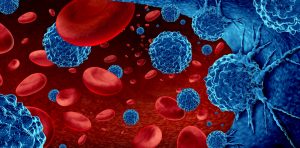Roche highlights R&D promise after setbacks
pharmafile | December 9, 2010 | News story | Research and Development | MS, Roche, oncology, personalised medicine, schizophrenia
Roche has presented its pipeline to shareholders to boost confidence that it can sustain the spectacular growth of recent years.
The company’s R&D leaders highlighted 14 compounds, ten of which it says could be submitted to regulators by the end of 2013.
Its oncology portfolio has been the jewel in the company’s crown over the last decade, but it must now sustain its lead in the field, and expand into other therapy areas to maintain growth. The Swiss company says it will achieve this by launching next-generation cancer treatments, exploiting the move towards personalised healthcare, and expanding into neurology and central nervous system disorders.
The company has suffered a number of setbacks in 2010, including the failure of diabetes drug taspoglutide and additional indications for cancer drug Avastin.
It also recently announced a $2.41 billion cost saving programme to be introduced from 2012, which will see 4,800 jobs cut.
Hal Barron, head of global product development and chief medical officer of Roche presented the highlights to investors in London, and pointed to its schizophrenia and multiple sclerosis pipeline drugs as evidence of its expansion.
“We also see that the concept of personalised healthcare is becoming a reality for more and more of our development projects,” he said. “MetMAb and the BRAF inhibitor are two encouraging examples for how personalised therapy could improve outcomes in lung cancer and melanoma, respectively.”
Oncology
The company has five updated oncology drug candidates including pertuzumab-Herceptin, which uses two innovative MAbs to improve outcomes for HER2 + breast cancer patients beyond the current remit of Herceptin as a monotherapy.
Data from the phase III study in first line HER2+ patients is expected for 2011.
Roche recently showed positive results for its T-DM1 candidate that builds upon the HER2+ targeting capabilities of Herceptin.
T-DM1 uses a new, targeted antibody that can kill breast cancer cells at a later stage of the disease after the failure of other chemotherapy and cancer drugs. Final results of this study are expected in the second quarter of 2011.
Results of MetMAb, a unique monovalent antibody targeting the MET-expressing form of non-small cell lung cancer (NSCLC), was also presented in conjunction with its established NSCLC drug Tarceva as a third line treatment. Final data from this study is expected early next year.
MetMAb is also being studied in combination with chemotherapy agents, with or without Avastin, in a phase II trial for triple negative metastatic breast cancer.
RG7204, a new treatment for metastatic melanoma is another potential success for the company. It targets BRAF mutation-positive metastatic melanoma, a particularly aggressive cancer with few treatment options. The drug has been shown to give 6.2 months of progression-free survival in recent phase II data.
Hal Barron said MetMAb and the BRAF inhibitor are two encouraging examples for how personalised therapy could improve outcomes in lung cancer and melanoma, respectively.”
The collaboration of Roche’s pharma and diagnostics divisions will also allow for further development of personalised healthcare as its predictive diagnostic tests will keep pace with the progress of its cancer drug candidates.
Biomarker programmes for all phase III projects are already in development and include biomarker assays for the BRAF inhibitor, pertuzumab, T-DM1 and MetMAb.
CNS and neurological disorders
Roche is also developing a number of key drug candidates outside of its oncology business area.
RG1678 is in phase III development for schizophrenia. A first-in-class glycine reuptake inhibitor, the drug normalises glutamate neurotransmission, a recognised disease pathway in psychiatric disorders.
The drug’s novel targeting capacity could mean it will be used in psychiatric indications beyond schizophrenia, Roche said.
The company was forced to abandon ocrelizumab in rheumatoid arthritis due to safety concerns earlier this year, but the drug has progressed into phase III trials for multiple sclerosis.
Ben Adams
Related Content

Genentech’s Columbi meets primary endpoint in phase 3 trial for lymphoma treatment
Genentech, part of the Roche Group, has announced that its phase 3 STARGLO trial has …

Curve Therapeutics’ CSO publishes research on HIF inhibition for cancer treatment
Curve Therapeutics has announced that its chief scientific officer, Professor Ali Tavassoli has published research …

Lonza to acquire biologics site in Vacaville, US from Roche for $1.2bn
Lonza has announced that it has signed an agreement to acquire the Genentech large-scale biologics …








